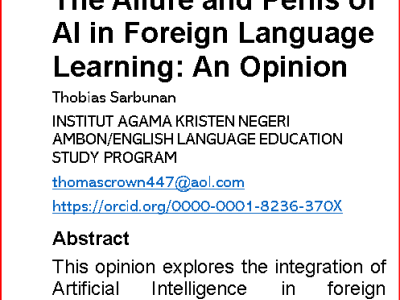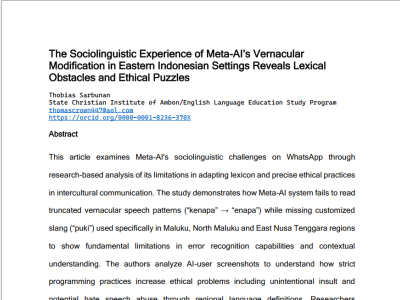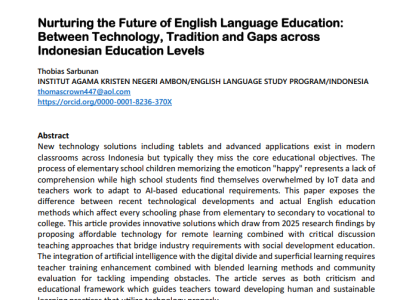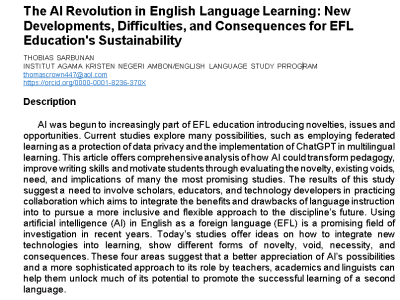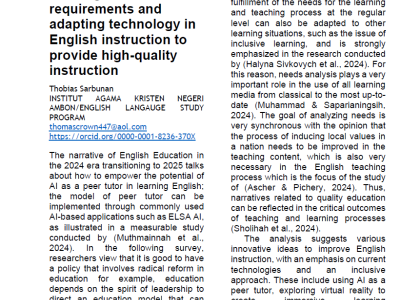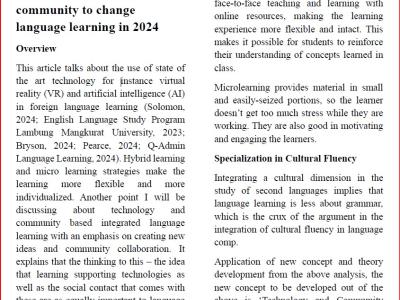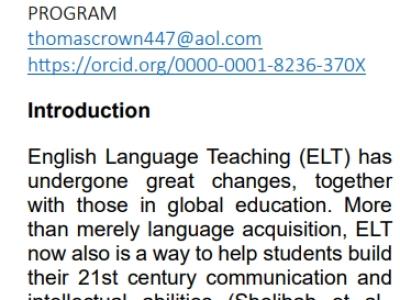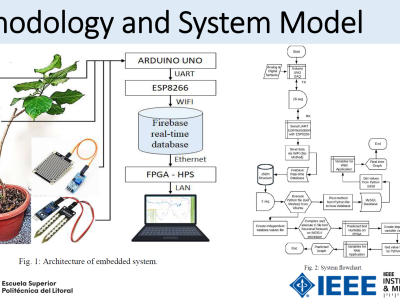Contemporary Theories in the Application of AI to English Teaching for Non-Native Speakers
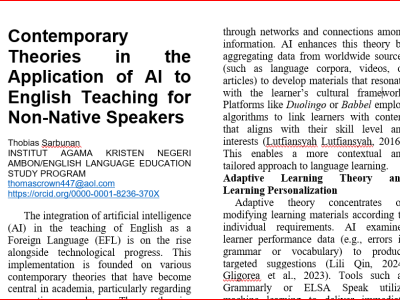
- Citation Author(s):
- Submitted by:
- Thobias Sarbunan
- Last updated:
- DOI:
- 10.21227/ga2x-gq27
- Data Format:
 33 views
33 views
- Categories:
- Keywords:
Abstract
The integration of artificial intelligence (AI) in the teaching of English as a Foreign Language (EFL) is on the rise alongside technological progress. This implementation is founded on various contemporary theories that have become central in academia, particularly regarding non-native speakers. These theories encompass sociocultural approaches, connectivism, and adaptive learning, which work in conjunction with AI’s capacity to tailor learning experiences and enhance language engagement.
Instructions:
A COMENTARY ARTICLE
TRANSLATE with


